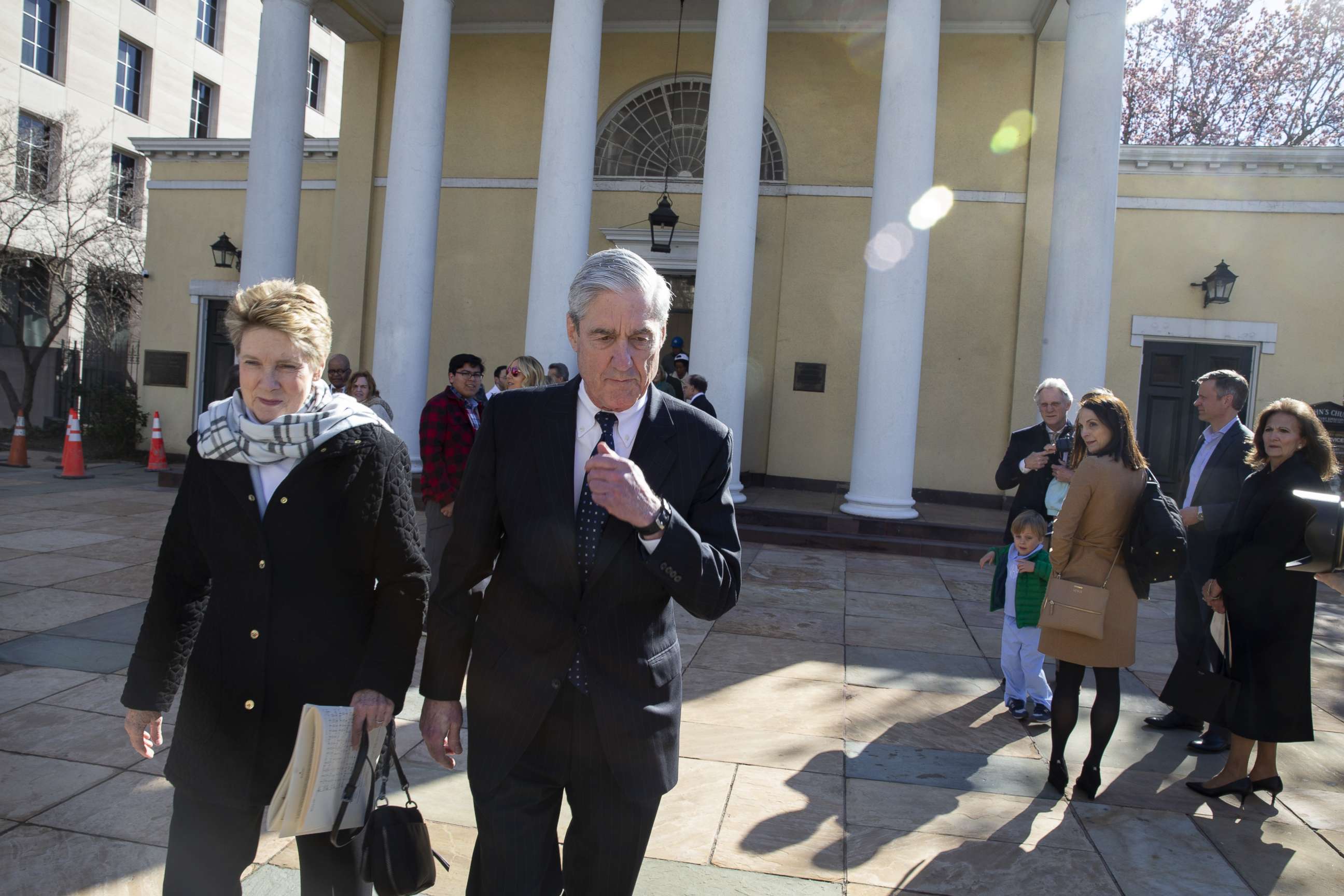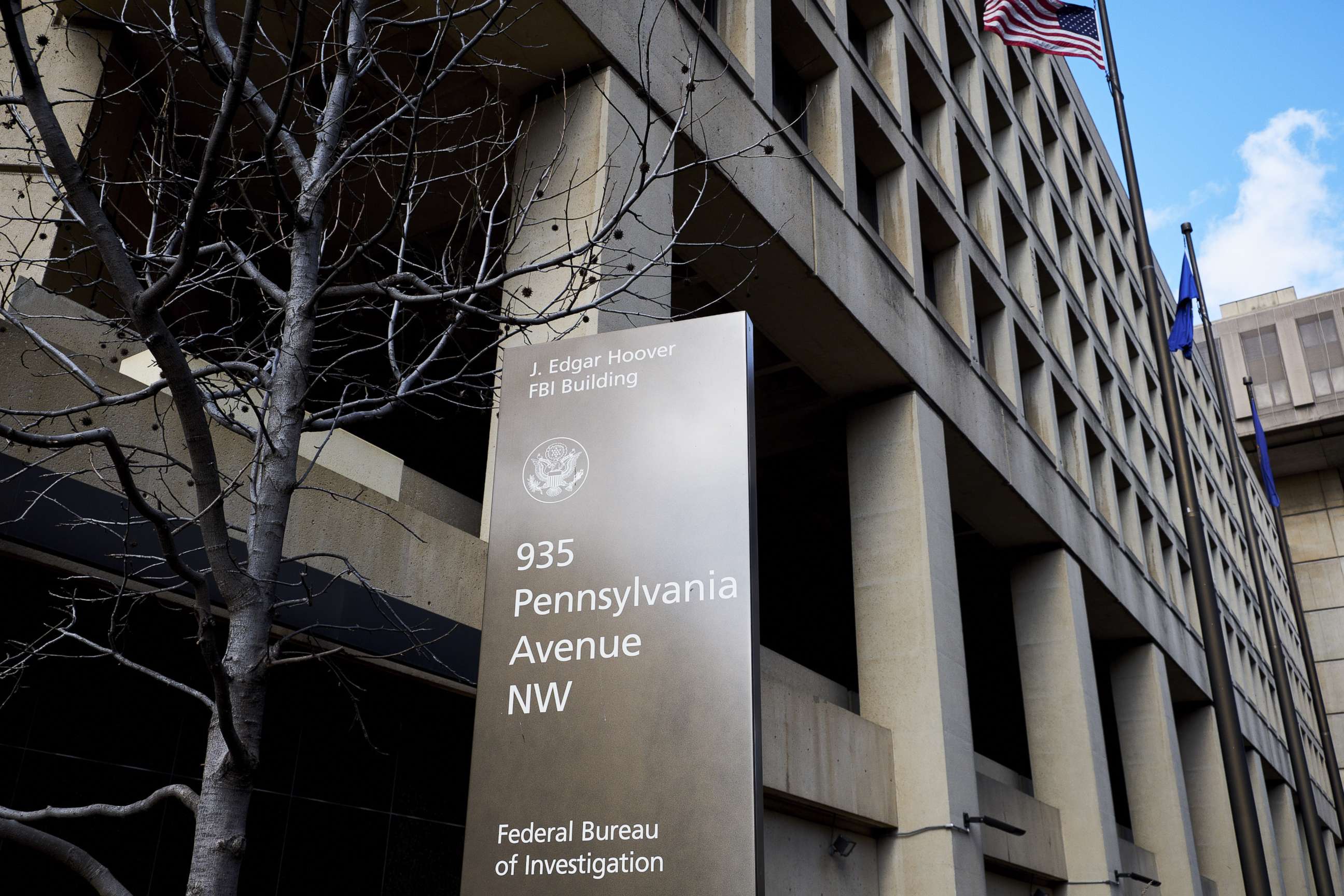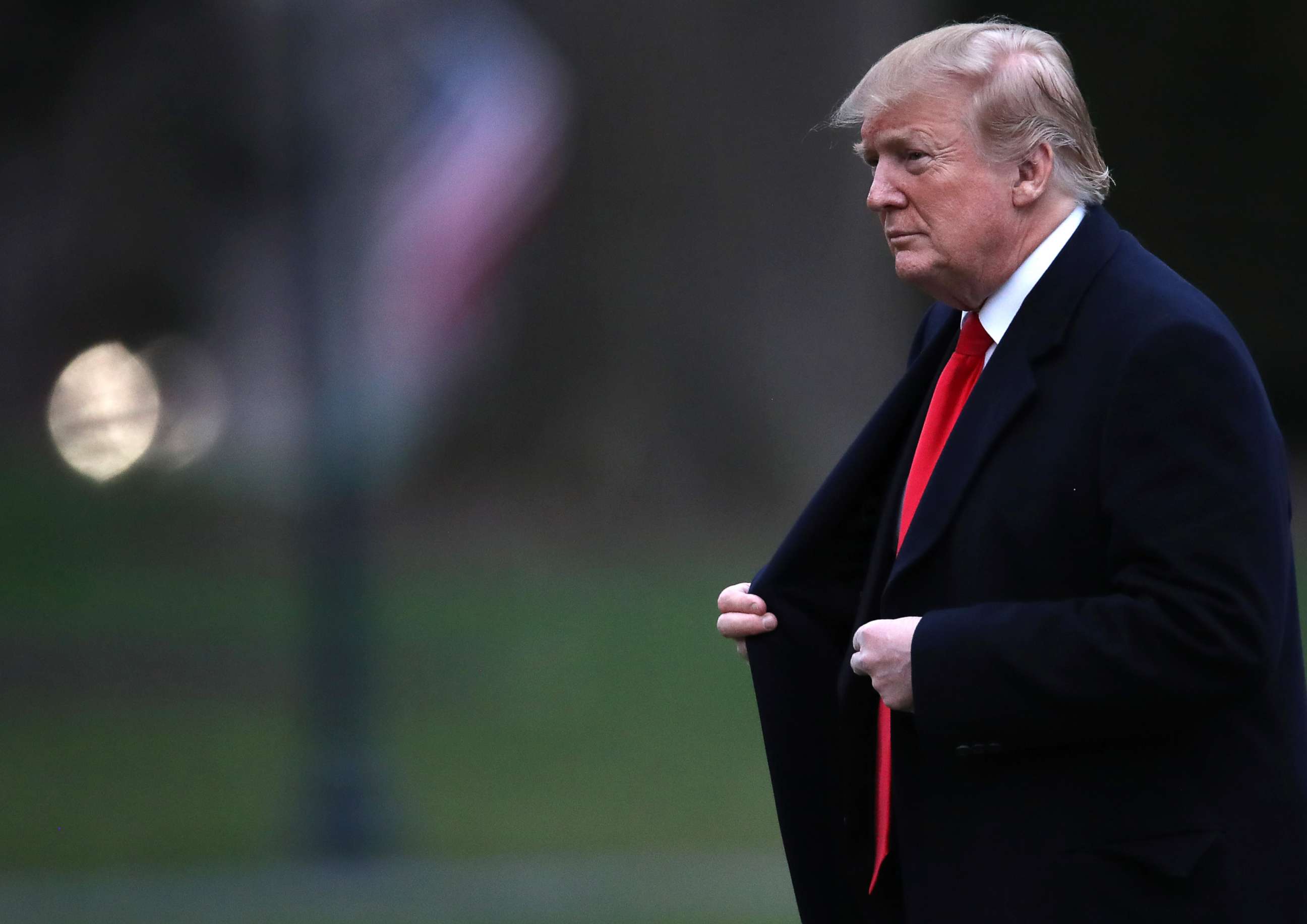Mueller is done, but DOJ probe of alleged bias on Mueller and FBI teams is not
The DOJ's inspector general is still months away from issuing his report.
The White House says President Donald Trump is "completely vindicated" by special counsel Robert Mueller's conclusions as relayed by Attorney General William Barr.
But that doesn't mean Trump is vindicated in his unrelenting attacks on the Mueller and FBI probes as biased and corrupt. Allegations of misconduct in the federal government’s Russia-related probe are still under investigation by the Justice Department’s inspector general.
In fact, a government report on allegations of political bias within Mueller's office and the FBI isn't expected to be finalized for several more months, sources told ABC News.
And on Monday, Trump conceded he now believes Mueller acted honorably, even if others didn't. The day before, within hours of Barr releasing a letter on Mueller’s final conclusions, some of Trump’s strongest allies on Capitol Hill also praised Mueller’s work.
“Great job by Mr. Mueller and his team to thoroughly examine all things Russia,” proclaimed the chairman of the Senate Judiciary Committee, Sen. Lindsey Graham, R-S.C.

But, shortly after Barr released his letter Sunday, Trump described Mueller's investigation as "an illegal takedown that failed." And over the past year, he's derided it as a "rigged" and "conflicted investigation in search of a crime" that was led by "13 angry Democrats."
Trump and his allies have repeatedly cited what they claim was "abuse" of the Foreign Intelligence Surveillance Act -- or FISA -- which allows U.S. agencies to secretly intercept a target's communications with court approval.
In Trump's words, the FBI conducted "illegal surveillance" of his former adviser, Carter Page, by using information from what he called a "phony and corrupt dossier" to convince a federal judge that Page could be a Russian agent.
On Monday, Graham said the surveillance of Page was "disturbing," but he didn't "yet know" if it was illegal.
A year ago, the Justice Department's inspector general, Michael Horowitz, announced he was launching an investigation into the allegations of misconduct, including a review of how the FBI handled the author of the controversial "dossier," former British spy Christopher Steele, who claimed to be told by sources that Page and other Trump associates were working with Russians to help Trump win the White House in 2016 and boost Trump's businesses.
Horowitz is also looking into whether FBI officials Peter Strzok and Lisa Page, who privately exchanged anti-Trump text messages while working on the Russia probe, were guided by politics in their official actions, and whether senior Justice Department official Bruce Ohr improperly tried to influence the probe by sharing Steele's information with the FBI, even though the agency had already received much of Steele's information from elsewhere.

Last year, Deputy Attorney General Rod Rosenstein, who oversaw Mueller’s investigation, urged the public “not to jump to any conclusions … until we have all the information."
"I think it's appropriate to let the inspector general complete that investigation," he told lawmakers.
Horowitz has said he was “deeply troubled” by many of the text messages Strzok and Page sent to each other during the Russia probe, including one message from August 2016 in which Strzok said "we'll stop" Trump from becoming president.
"[I]t is not only indicative of a biased state of mind but, even more seriously, implies a willingness to take official action to impact the presidential candidate’s electoral prospects," Horowitz wrote in a report on his separate review of how the FBI handled its investigation of Hillary Clinton’s personal email server.
Nevertheless, Horowitz acknowledged that – at least in the Clinton-related matter – his office "did not find evidence to connect the political views expressed in these messages to the specific investigative decisions that we reviewed." The decisions and “judgment calls” made by Strzok, Page and others “were not unreasonable," Horowitz wrote.
Page and Strzok have vehemently denied allowing politics to taint their conduct as law enforcement officials.
"Not a single action was taken that would evidence that we attempted to stop [Trump’s campaign],” Lisa Page told lawmakers behind closed doors last year. “Our personal views … are irrelevant. What matters is what we do. And over and over and over and over again, there is absolutely nothing that anyone can point to, to suggest that we ever took any step that was inappropriate.”
“We did a good job,” she added, “and we did it the way the American people would expect us to do it."

The Russia probe was first opened by the FBI after a young Trump campaign adviser, George Papadopoulos, claimed to have been told by a Russian operative that the Kremlin had compiled “dirt” on Clinton.
At that time, “there was absolutely no preconceived belief or feeling at all that it was Donald Trump himself,” Page testified.
When the Russia team in Washington received the “dossier” two months later, the FBI immediately “set about trying to prove or disprove every single factual statement in the dossier,” she said.
As Strzok later described it, the FBI had received “an extraordinary allegation" describing "a coordinated effort by the Government of Russia to elect somebody here in the United States … And I think there's no national security professional out there worth his salt who would not want to be fighting to protect America against that.”
Strzok and others inside the FBI were so alarmed because, as Page put it, “Russia poses the most dangerous threat to [our] way of life.”
“Even the threats that are posed by China or by Iran or North Korea don’t speak to sort of the core of Western democracy,” she said.
Shortly after Mueller was appointed as special counsel in May 2017, Strzok and Page joined his team, but both left after their text messages were discovered. Strzok was eventually fired from the FBI and Page resigned.
In his letter to Congress on Sunday laying out Mueller’s “principal conclusions,” Barr said Mueller’s investigation confirmed a vast Russian government effort to influence the 2016 election, but Mueller “did not find that the Trump campaign or anyone associated with it conspired or coordinated with Russia” in those efforts.
Barr also said that while Mueller “does not conclude that the President committed a crime” in trying to obstruct the federal probe of Russian interference, Mueller “also does not exonerate him." Barr and Rosenstein, however, concluded the evidence developed during the investigation “is not sufficient” to warrant charges against Trump, Barr wrote.
As for Horowitz’s probe of alleged bias in the Russia probe, Horowitz last spoke publicly about it four months ago.
He said his office was still conducting interviews and would be poring through more than a million documents.
But "we're making good progress on it,” he said.
ABC News' Mariam Khan contributed to this report.




